T21-7 無力感からの脱出
We're hallucinating.
私たちは幻覚を見ているのです。
And that's what this world is: a mass hallucination, where fear seems more real than love.
この世界は幻覚です。壮大な規模の幻影であり、そこでは、愛よりも恐れが現実のように見えています。
Fear is an illusion.
恐れは錯覚です。
Our craziness, paranoia, anxiety and trauma are literally all imagined.
私たちは狂っているのであり、妄想、不安、そして心的外傷は文字通りすべて想像の産物なのです。

Marianne Williamson
マリアン・ウィリアムソン







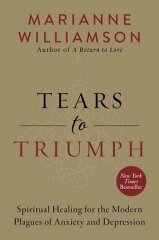



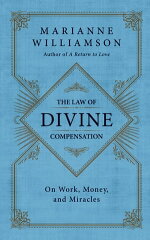






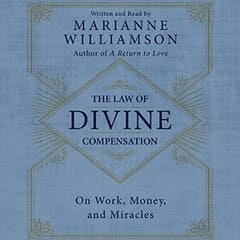

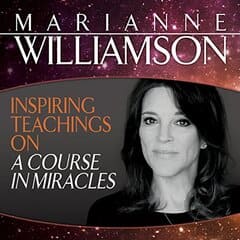
傷つくのを恐れることは、実際に傷つくよりもつらいものだと、おまえの心に言ってやるがよい。夢を追求している時は、心は決して傷つかない。それは、追求の一瞬一瞬が神との出会いであり、永遠との出会いだからだ

パウロ・コエーリョ(「アルケミスト」より)
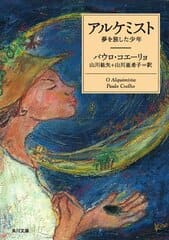




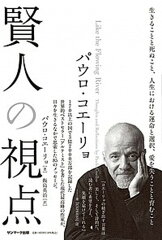


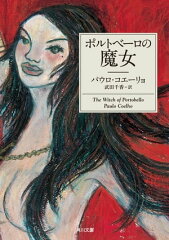
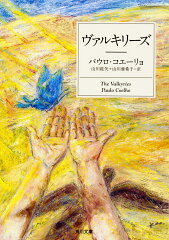

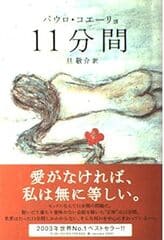



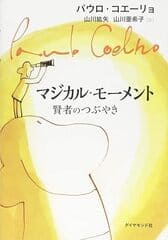



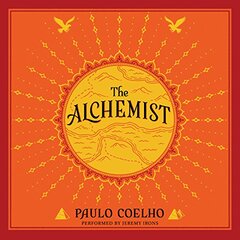
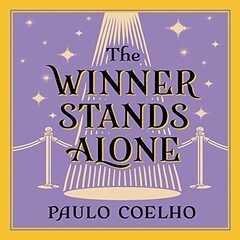
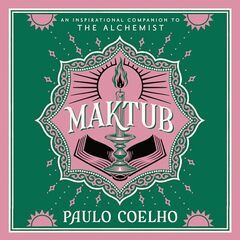
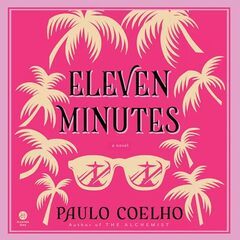
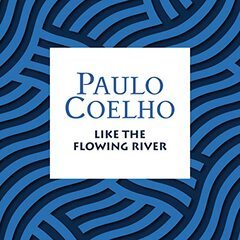


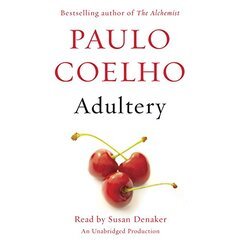
I have learned that success is to be measured not so much by the position that one has reached in life as by the obstacles which he has had to overcome while trying to succeed.
真の成功とは、その人が人生で到達した地位の種類や高さによってではなく、彼が成功しようと挑戦する過程で乗り越えてきた障害の大きさや数によって測られるものだと私は学びました。

Booker T Washington
ブッカー・T・ワシントン

今回は、テキスト第二十一章から、「答えられていない最後の質問」をご紹介します。
無力感、惨めさ、不幸
私たちは、この世界の中で、無力感を抱き、惨めさや不幸を味わいます。
この無力感は、私たちが自分たちのことを、神の子ではなく、人の子であり、罪を犯す矮小な存在にすぎないと信じることから生じます。
自分が無力でちっぽけな存在でしかないと信じると、自分の持っていない力を持つ存在を嫉妬し、恐れるようになります。
つまり、自分は無力だと信じる者たちは、神の子の敵となります。
彼らは徒党を組んで大規模な軍勢となり、神の子を自分たちと同じ哀れで無力な存在に引きずり下ろそうと、この世界の中に敵を探して攻撃しようとします。
軍勢は、敵の姿を認めて攻撃しますが、仕留めたと思った瞬間、その敵は自分たち自身へと姿を変えてしまいます。
実のところは、自分たち自身が神の子なわけですから、軍勢が探して攻撃している敵は想像上の存在でしかなく、多様に姿を変える幻にすぎません。
そもそも、軍勢の一員として神の子を敵と見ている矮小な自己像のほうこそ夢の中の登場人物にすぎません。
神の子自身が、幻の世界の中に、このような架空の登場人物たちを作り出し、その一人ひとりに一体化しては、真の自己を仮想敵として、いもしない敵と果てしない戦いを繰り広げているのです。
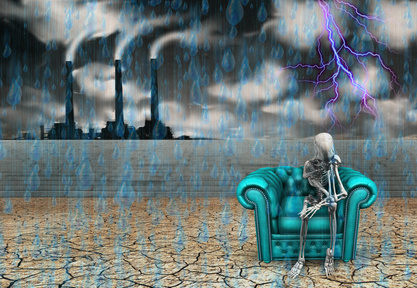
罪のない世界を見たいという意欲
自分こそが神の子で、無数に分裂した小さな自分になって敵を探す罪の世界が幻だということを思い出すには、何よりもまず、罪のない世界を見たいという意欲を持たなければなりません。
この意欲を持つうえで自問すべきものとして、次の4つの質問が出てきます。
5.「Do I desire a world I rule instead of one that rules me?
私は、自分が支配される世界ではなくて、自分が支配する世界を望むだろうか。
Do I desire a world where I am powerful instead of helpless?
私は、自分が無力ではなく、自分が力強くある世界を望むだろうか。
Do I desire a world in which I have no enemies and cannot sin?
私は、誰も敵がおらず、罪を犯すことなどできない世界を望むだろうか。
And do I want to see what I denied because it is the truth?
そして、私は、それが真実であるという理由で、かつて自分が否定したものを見たいと思うだろうか。」
1 私は、自分が支配される世界ではなくて、自分で支配する世界を望むだろうか。
2 私は、自分が無力ではなくて、自分が力強くある世界を望むだろうか。
3 私は、誰も敵がおらず、罪を犯すことなどできない世界を望むだろうか。
4 そして、私は、それが真実であるという理由で、かつて自分が否定したものを見たいと思うだろうか。
4つ目の質問
1から3の質問は簡単に答えが出せるように思えます。
本節では、4つ目の質問のみが時間の観点が入った鍵を握る質問だと言います。
4つ目の質問"And do I want to see what I denied because it is the truth?"の " do I want to see what I denied "が何を指すのか、そしてこの" do I want to see what I denied "と"because it is the truth"の関連がわかりにくいです。
まず、"what I denied"は、1から3までの質問への否定的回答(1自分が支配される世界、2自分が無力な世界、3敵だらけで罪深い世界)のことを指します。
だから、"And do I want to see what I denied "は、かつて自分が質問に否と答えて、見ることになっていた無力で支配される敵だらけの罪深い世界を、今度は、それが真実であるという根拠に基づいて、改めて、質問に肯定的に答えて、力強い自分が自分で支配する敵がおらず罪を犯すことができない世界を見たいだろうかと問い直すことです。
したがって、"because it is the truth?"は、自分で支配する世界、自分が力強くある世界、誰も敵がおらず罪を犯すことができない世界が真実だからこそ、その通りの世界を見たくはないか?という改めて肯定的に答える根拠を示していることになります。
単純に自分の願望としてであれば、望んだり望むのをやめたりというふうに答えは変動しますが、かつて素朴な願望として否定したこともあるけれど、今度はそれが真理であるという根拠に基づいて肯定するなら、時間経過によって変動する余地はなくなり、答えは一択となります。
そこで、訳文は「私は、それが真実であるという理由で、かつて自分が否定したものを見たいと思うだろうか。」としています。

テキスト第二十一章
VII. The Last Unanswered Question
七 答えられていない最後の質問

1. Do you not see that all your misery comes from the strange belief that you are powerless?
あなたの不幸はすべて、自分は無力だという突拍子もない信念をあなたが抱いているために生じていることが、あなたにはわからないのでしょうか。
Being helpless is the cost of sin.
無力になることは罪の代償です。
Helplessness is sin's condition; the one requirement that it demands to be believed.
無力さこそ、罪の条件であり、罪が信じられるために求められる唯一の必要条件です。
Only the helpless could believe in it.
魅力な者にしか罪を信じることはできないからです。
Enormity has no appeal save to the little.
凶悪さに魅力を感じるのは、卑小な者だけです。
And only those who first believe that they are little could see attraction there.
だから、そもそも自分は取るに足らない卑小な者だと信ずる者しか、凶悪さに魅力を感じることができないのです。
Treachery to the Son of God is the defense of those who do not identify with him.
神の子に反逆することは、自分は神の子だという自覚を持たない者たちがなす防衛反応です。
And you are for him or against him; either you love him or attack him, protect his unity or see him shattered and slain by your attack.
そして、あなたは神の子に与(くみ)するか敵(てき)するかのいずれかです。すなわち、神の子を愛するのか攻撃するのか、神の子がひとつであることを保護するのか神の子を自分の攻撃によって打ち砕かれて殺害されたものとみなすのか、そのいずれかです。
2. No one believes the Son of God is powerless.
誰も神の子が無力だとは信じません。
And those who see themselves as helpless must believe that they are not the Son of God.
だから、自分が無力だと思っている者は、自分は神の子ではないと信じているに違いありません。
What can they be except his enemy?
そんな彼らが神の子の敵以外の何になりうるというのでしょうか。
And what can they do but envy him his power, and by their envy make themselves afraid of it?
そして、そんな彼らに、神の子が持つ力に嫉妬して、自分たちの嫉妬心によって、神の子の力に恐怖を覚えるほかに何ができるでしょうか。
These are the dark ones, silent and afraid, alone and not communicating, fearful the power of the Son of God will strike them dead, and raising up their helplessness against him.
彼らは闇の存在です。彼らは、神の子の力に打ち殺されるのではないかと恐れて、息をひそめて恐れおののき、孤立したまま誰ともコミュニケーションを図ろうとせず、自分たちの無力さを盾にして神の子に対抗しようとします。
They join the army of the powerless, to wage their war of vengeance, bitterness and spite on him, to make him one with them.
彼らは、無力な者たちの軍勢に加わり、神の子を自分たちと同じような無力なものにしようと、神の子に対する復讐心や敵意と悪意に満ちた戦いを挑みます。
Because they do not know that they are one with him, they know not whom they hate.
彼らは自分たちが神の子とひとつであることがわかっていないので、自分たちが憎んでいる相手が誰なのかわかりません。
They are indeed a sorry army, each one as likely to attack his brother or turn upon himself as to remember that they thought they had a common cause.
彼らは実に哀れな軍勢です。彼らは、自分たちが共通の大義を持っていると思っていたことを思い出そうとして、それぞれが自分の兄弟を攻撃したり、自分自身に襲いかかったりします。

3. Frantic and loud and strong the dark ones seem to be.
闇の者たちは、逆上して大声でわめくので、一見すると強そうに見えます。
Yet they know not their "enemy," except they hate him.
しかし、彼らは自分たちの「敵」を自分たちが憎んでいることだけはわかっていても、その「敵」のことは何も知りません。
In hatred they have come together, but have not joined each other.
憎しみを旗印に結集したとはいえ、彼らは互いに心をひとつに結び合わせたわけではないのです。
For had they done so hatred would be impossible.
というのも、もし彼らの心がひとつになっていたなら、憎むことなど不可能だったはずだからです。
The army of the powerless must be disbanded in the presence of strength.
無力な者たちの軍勢は、強さを前にして、解隊を余儀なくさせられます。
Those who are strong are never treacherous, because they have no need to dream of power and to act out their dream.
真に強い者は、決してぐらつきません。なぜなら、強い者は、自分に力があることを夢見て、その夢想を実行に移す必要がないからです。
How would an army act in dreams?
夢の中で、軍勢はどんな行動を取るでしょうか。
Any way at all.
やりたい放題です。
It could be seen attacking anyone with anything.
手段も選ばず、手当たり次第に誰でも攻撃しているように見えます。
Dreams have no reason in them.
夢の中には、理性などまったくありません。
A flower turns into a poisoned spear, a child becomes a giant and a mouse roars like a lion.
花が毒を塗られた槍に変わったり、子供が巨人になったり、ネズミがライオンのように吼えたりします。
And love is turned to hate as easily.
そして、それと同じくらい簡単に、愛は憎しみに変わります。
This is no army, but a madhouse.
これでは軍隊どころか、ただの狂人たちの収容所です。
What seems to be a planned attack is bedlam.
計画的な攻撃のように見えたものは、狂気の乱痴気騒ぎでしかありません。
4. The army of the powerless is weak indeed.
無力な者たちの軍勢は実に脆弱です。
It has no weapons and it has no enemy.
そんな軍勢は何の武器も持っていないうえに、彼らには、そもそもひとりも敵がいないのです。
Yes, it can overrun the world and seek an enemy.
たしかにその軍勢は、世界中を侵略して、敵を探すことはできます。
But it can never find what is not there.
しかし、その軍勢には、存在しないものを見つけることは絶対にできません。
Yes, it can dream it found an enemy, but this will shift even as it attacks, so that it runs at once to find another, and never comes to rest in victory.
たしかに、無力な者たちの軍勢は自分たちが敵を見つけたと夢見ることはできます。しかし、その敵は、彼らが攻撃をしている最中でさえ姿を変えてしまうので、彼らはすぐにほかの敵を見つけようと走り回ることになり、いつまでたっても勝利の余韻に浸ることができません。
And as it runs it turns against itself, thinking it caught a glimpse of the great enemy who always eludes its murderous attack by turning into something else.
それに、大敵の姿をちらりと垣間見たと思って攻撃しても、その敵はつねに何か別のものに姿を変えることによって軍勢の残忍な攻撃を巧みにすり抜けてしまうので、軍勢は行軍しても、自分たち自身に対峙することになります。
How treacherous does this enemy appear, who changes so it is impossible even to recognize him.
認識することすらままならない変幻自在なこの敵は、なんと危険きわまりない相手に思えることでしょう。

5. Yet hate must have a target.
とはいえ、憎しみを抱くには、その標的がなければなりません。
There can be no faith in sin without an enemy.
敵がいなければ、罪を信じることはできないからです。
Who that believes in sin would dare believe he has no enemy?
罪を信じていながら、自分には敵がいないと信じる者がいるでしょうか。
Could he admit that no one made him powerless?
そんな彼に、誰も彼の力を奪って無力にしてなどいないと認めることができるでしょうか。
Reason would surely bid him seek no longer what is not there to find.
理性は確実に、存在しないものをそれ以上探すのはもうやめるようにと彼に命ずるでしょう。
Yet first he must be willing to perceive a world where it is not.
しかし、何よりもまず、彼は罪のない世界を見たいという意欲を持たなければなりません。
It is not necessary that he understand how he can see it.
どのようにすれば自分にそんな世界が見えるのか、彼が理解している必要はありません。
Nor should he try.
それどころか、彼は理解しようとすべきではありません。
For if he focuses on what he cannot understand, he will but emphasize his helplessness, and let sin tell him that his enemy must be himself.
なぜなら、もしその人が自分に理解できないことに焦点を当てるなら、彼は罪が彼に自分の敵は自分自身に違いないと教えることを容認して、ただ自らの無力さを強調することにしかならないからです。
But let him only ask himself these questions, which he must decide, to have it done for him:
ただ、彼に次のような質問を自分に尋ねさせるがよいでしょう。それは、これらの問題を解決するために、彼がまず決心すべきことだからです。
Do I desire a world I rule instead of one that rules me?
私は、自分が支配される世界ではなくて、自分が支配する世界を望むだろうか。
Do I desire a world where I am powerful instead of helpless?
私は、自分が無力ではなく、自分が力強くある世界を望むだろうか。
Do I desire a world in which I have no enemies and cannot sin?
私は、誰も敵がおらず、罪を犯すことなどできない世界を望むだろうか。
And do I want to see what I denied because it is the truth?
そして、私は、それが真実であるという理由で、かつて自分が否定したものを見たいと思うだろうか。
6. You may already have answered the first three questions, but not yet the last.
あなたはすでに、最初の三つの質問には答えているかもしれません。しかし、最後の質問にはまだ答えていません。
For this one still seems fearful, and unlike the others.
というのも、この最後の質問は依然として恐ろしそうに見えて、ほかの質問とは違うように思えるからです。
Yet reason would assure you they are all the same.
しかし、理性はあなたに、最後の質問も含めてこれらの質問はみな同じだと確信させてくれるでしょう。
We said this year would emphasize the sameness of things that are the same.
私たちは、今年は、同じである物事について、それらの同一性を強調するつもりだと述べました。
This final question, which is indeed the last you need decide, still seems to hold a threat the rest have lost for you.
本当に最終的にあなたの決心を要するのは、この最後の質問だけです。この最後の質問だけは依然として、ほかの質問にはもう感じない脅威をあなたに感じさせる力を保っているように思えます。
And this imagined difference attests to your belief that truth may be the enemy you yet may find.
そして、最後の質問とほかの質問のこの想像上の違いは、あなたが真理のことを、まだ自分がこれから直面する可能性のある敵かもしれないと信じていることを証明しています。
Here, then, would seem to be the last remaining hope of finding sin, and not accepting power.
それゆえに、ここには、罪を見出して力を受け入れずにいられる最後の希望が残っているように思えます。

7. Forget not that the choice of sin or truth, helplessness or power, is the choice of whether to attack or heal.
罪と真理、無力さと力のいずれを選ぶかは、攻撃と癒しのいずれかを選ぶ選択だということを忘れないでください。
For healing comes of power, and attack of helplessness.
というのは、癒しは力から生じますが、攻撃は無力さから生まれるからです。
Whom you attack you cannot want to heal.
自分が攻撃している相手を、あなたが癒してあげたいと望むはずがありません。
And whom you would have healed must be the one you chose to be protected from attack.
そして、あなたが癒そうとする相手は、あなたが攻撃から守られるべきだと選択した人であるに違いありません。
And what is this decision but the choice whether to see him through the body's eyes, or let him be revealed to you through vision?
そして、この決断は、他者を肉体の目を通して見ようとするのか、それともヴィジョンを通して彼があなたに真の姿を現すに任せることにするのかという選択にほかなりません。
How this decision leads to its effects is not your problem.
このような決断がどのようにしてその結果を導くのかは、あなたが心配すべき問題ではありません。
But what you want to see must be your choice.
しかし、何を見たいと望むかは、あなたが自分で選択しなければなりません。
This is a course in cause and not effect.
このコースは原因について学ぶコースであって、結果について学ぶコースではないのです。
8. Consider carefully your answer to the last question you have left unanswered still.
あなたがまだ答えずにいる最後の質問に対する自分の答えについて、注意深く考えてください。
And let your reason tell you that it must be answered, and is answered in the other three.
そして、その質問には必ず答えなければならないし、答えはほかの三つの質問の中にあることを、あなたの理性に教えてもらいなさい。
And then it will be clear to you that, as you look on the effects of sin in any form, all you need do is simply ask yourself:
そうすれば、いかなる形で罪の結果を見るときでも、あなたがなすべきことは、ただ次のことを自問することだけだとはっきりするでしょう。
Is this what I would see?
こんなものを私は見たいのだろうか。
Do I want this?
私はこんなものを望んでいるのだろうか。

9. This is your one decision; this the condition for what occurs.
これこそあなたの下すべき唯一の決断であり、これが何が起こるかを左右する条件です。
It is irrelevant to how it happens, but not to why.
あなたの決断は、どのようにしてそれが起こるかには関係ありませんが、なぜそれが起こるかには関係があります。
You have control of this.
あなたは、このことについてはコントロールする力があるのです。
And if you choose to see a world without an enemy, in which you are not helpless, the means to see it will be given you.
そして、もしあなたが自分が無力ではない世界、つまり、敵のいない世界を見ることを選ぶのなら、敵のいない世界を見るための手段があなたに与えられるでしょう。
10. Why is the final question so important?
なぜ最後の質問が、そんなにも重要なのでしょうか。
Reason will tell you why.
理性がその理由を教えてくれるでしょう。
It is the same as are the other three, except in time.
最後の質問は、時間の観点を除いては、ほかの三つの質問と同じです。
The others are decisions that can be made, and then unmade and made again.
最初の三つの質問に対する答えは、答えてから、そのあとで取り消し、そして再び答える、ということが可能な決断です。
But truth is constant, and implies a state where vacillations are impossible.
しかし、真理は不変であって、変動することがありえない状態を意味します。
You can desire a world you rule that rules you not, and change your mind.
あなたは、自分が支配されるのではなく、自分が支配する世界を切に望んでおきながら、自分の心を変えてしまうこともできます。
You can desire to exchange your helplessness for power, and lose this same desire as a little glint of sin attracts you.
あなたは、自分の無力さを力と交換したいと切望しながら、つまらない罪の閃光に魅惑されて、その望みを失ってしまうこともできます。
And you can want to see a sinless world, and let an "enemy" tempt you to use the body's eyes and change what you desire.
そして、あなたは、罪のない世界を見たいと望みながらも、「敵」が肉眼を用いるよう自分を惑わすのを許し、自分の望みを変更してしまうこともできます。

11. In content all the questions are the same.
内容に関しては、どの質問もみな同じです。
For each one asks if you are willing to exchange the world of sin for what the Holy Spirit sees, since it is this the world of sin denies.
というのは、それぞれの質問はいずれも、あなたに罪の世界を聖霊の見ている世界と交換する意欲があるかと尋ねているからです。それは、罪の世界が否定しようとするのは聖霊の見ている世界だからです。
And therefore those who look on sin are seeing the denial of the real world.
したがって、罪を目にする者たちは、真の世界を否認した虚像を見ているのです。
Yet the last question adds the wish for constancy in your desire to see the real world, so the desire becomes the only one you have.
しかし、最後の質問は、真の世界を見たいというあなたの望みに、不変性の願いをも付け加えるので、その望みがあなたの抱く唯一の願いとなります。
By answering the final question "yes," you add sincerity to the decisions you have already made to all the rest.
最後の質問に「はい」と答えることによって、あなたは、自分がすでにほかの質問について下した決断に、真摯さを付け加えることになります。
For only then have you renounced the option to change your mind again.
というのは、それでようやく、あなたはいったん決心したことを何度でも変えられるという選択肢を放棄したことになるからです。
When it is this you do not want, the rest are wholly answered.
このような選択肢をあなたが望まなくなったとき、ほかの質問は完全に答えられることになります。
12. Why do you think you are unsure the others have been answered?
なぜあなたは、ほかの三つの質問がすでに答えられていることを自分は確信できないと思っているのでしょうか。
Could it be necessary they be asked so often, if they had?
もしほかの質問が答えられていたとしたら、そんなに何度も尋ねられる必要などあるでしょうか。
Until the last decision has been made, the answer is both "yes" and "no. "
最後の決断がなされるまでは、その答えは「はい」と「いいえ」の両方です。
For you have answered "yes" without perceiving that "yes" must mean "not no. "
というのは、あなたは「はい」というのは「いいえではない」ことを意味するに違いないと気づかないまま、「はい」と答えているからです。
No one decides against his happiness, but he may do so if he does not see he does it.
誰も故意に自分の幸せを否定する決断をしようとはしないものです。しかし、もしその人が自らの幸せに反する決断を自分がしようとしていることがわかっていなかったら、その人には現にそんな決断もできてしまいます。
And if he sees his happiness as ever changing, now this, now that, and now an elusive shadow attached to nothing, he does decide against it.
そして、もしその人が自分にとっての幸せとは、今はこれ、次はあれ、そして、今度はそれ、という具合に、ずっと変化し続ける無に附属する捉えどころのない影のようなものだとみなしていたなら、その人はたしかに、自分の幸せに反対の決断をしてしまうことになります。

13. Elusive happiness, or happiness in changing form that shifts with time and place, is an illusion that has no meaning.
つかみどころのない幸せ、あるいは時間や場所によって形が移り変わるような幸せは、無意味な幻想です。
Happiness must be constant, because it is attained by giving up the wish for the inconstant.
幸せは不変のものであるはずです。なぜなら、幸せは転変する物事への願望を手放してこそ得られるからです。
Joy cannot be perceived except through constant vision.
喜びは不変のヴィジョンを通してしか、知覚できません。
And constant vision can be given only those who wish for constancy.
そして、その不変のヴィジョンは不変性を望む者にのみ与えられます。
The power of the Son of God's desire remains the proof that he is wrong who sees himself as helpless.
神の子の願望の力こそ、自分自身を無力だとみなす者は間違っているという証拠であり続けます。
Desire what you want, and you will look on it and think it real.
自分の欲しいものを切望すれば、あなたには望みのものが見えてくるし、それが本物だと思うようになります。
No thought but has the power to release or kill.
どのような思いにせよ、思いには解放する力か殺す力、そのいずれかが備わっています。
And none can leave the thinker's mind, or leave him unaffected.
そのうえ、どんな思いもそれを思いついた人の心から離れることはできないし、彼に影響を及ぼさずにはいられないのです。










